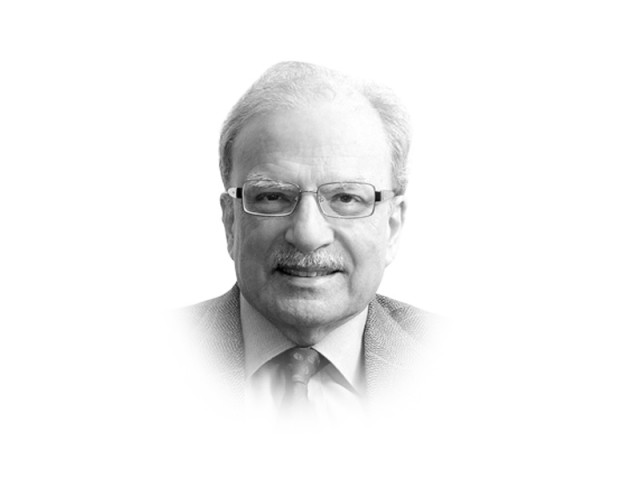Pakistan: Asia’s fulcrum
Given its geographic position, it is through Pakistan that a number of links to bring Asia together could run.

That China and India will exercise greater political and economic influences on the countries that lie on their peripheries can no longer be disputed. In that respect, most of east Asia and most of south Asia are well within the spheres of influence of Beijing and New Delhi, respectively. But there is one problem with this evolving structure. Washington, at this point, is not inclined to surrender this space entirely to Beijing. The Chinese on their part are not inclined to seek a monopoly for themselves. Over time, both sides will learn to accommodate each others’ interests. But it is in the two other parts of Asia where there was no dominant political presence to keep order — the word ‘order’ being used in a broad rather than a narrow sense — that political jockeying for appropriate positioning is underway. The old ‘great game’ is once again being played. As was the case in the one enacted more than a century ago, the game could have an uncertain end. However, the large Asian countries could save that situation from developing by acting on their own, rather than following the strategic interests of outside powers.
In the resource-rich central Asia, there are strong interests of three large powers — the United States, China and Russia. Each would like to dominate this geographic space and at least be in a position to retain influence in it over the making of public policy. In the Middle East, as a result of the Arab Spring, the old grand bargain has broken down. That bargain involved the understanding that the region’s autocrats will be left in place if they did not disturb the flow of oil to the West, kept the vital sea lanes open to international shipping and did not threaten the security of the state of Israel. As the results of the recent elections in Egypt demonstrate, the new political order that is emerging will have a very different set of objectives. Nationalism, tinged in some instances by lslamism, will be the driving force in many Middle Eastern states. For many, Turkey will be the model most likely to be followed. Similarly, the Asian countries could do a great deal themselves to create an economic order that serves their purpose. This is where Pakistan enters the picture.
Given its geographic position, it is through Pakistan that a number of links to bring Asia together could run. For the moment, the economic integration of Asia is coming in bits and pieces. There are a number of trading arrangements in place involving several different groups of countries. There was ASEAN for the east Asian countries but it has thrown out tentacles to bring other countries into its orbit. There are now several ‘Asean plus’ configurations in place. There was the SAFTA for south Asia that has only now begun to show some life after the decision by Islamabad and New Delhi to concentrate on economic and trade issues rather than keep their focus on hard to resolve problems. There is the Shanghai forum in which China is attempting to tie the countries of central Asia to itself in some kind of a trading and security arrangement. And then there are numerous bilateral arrangements between different countries. Examples of these are: China-Pakistan, India-Sri Lanka, Pakistan-Sri-Lanka, India-Bangladesh and so forth. All this sounds perplexing but it is the right way to proceed. It may not be a good idea to over-design a regional arrangement as the Europeans did decades ago. They — and the world — are now paying a price for quickly pushing ahead with that model of regional arrangement. For Asia, a multi-step approach aimed at regional connectivity would be a much better proposition. The right approach for bringing about greater economic cooperation among the larger countries of Asia is to focus on connecting them by investing in physical infrastructure. This should be done in several steps that will be identified in the article next week.
Published in The Express Tribune, July 30th, 2012.

















COMMENTS
Comments are moderated and generally will be posted if they are on-topic and not abusive.
For more information, please see our Comments FAQ